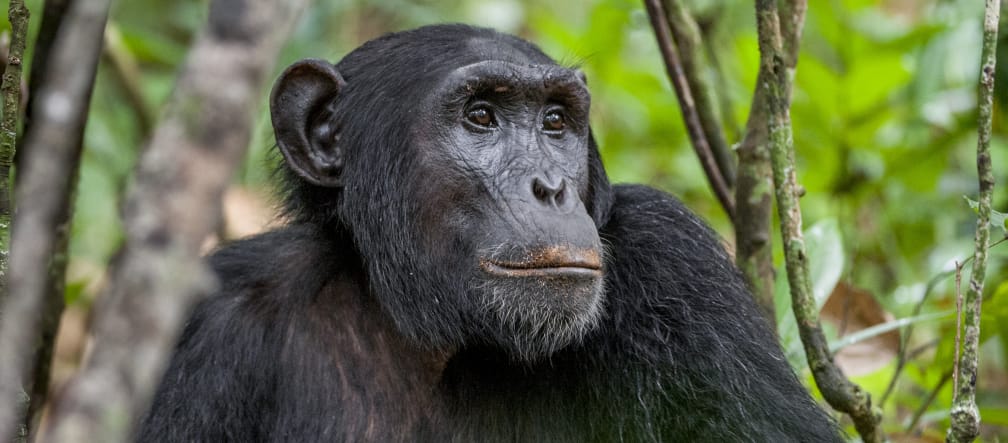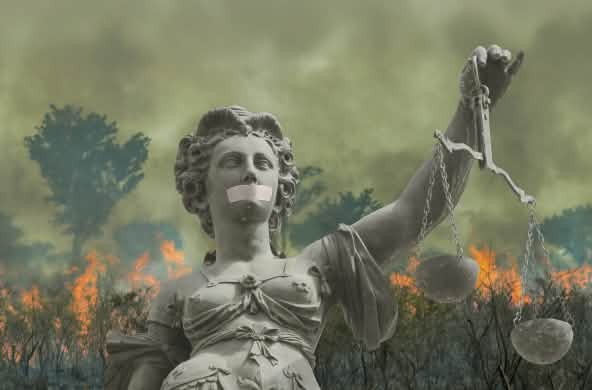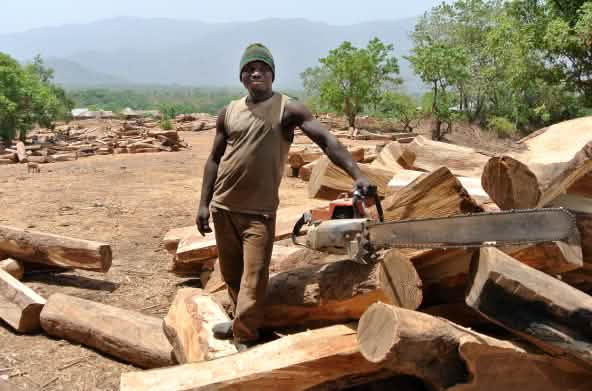
Completed campaign
Deforestation for chocolate? No thanks!
Illegal cocoa farms are eating away at protected forests in Côte d’Ivoire and destroying the habitat of primates. Chimpanzees and several monkey species have all but disappeared from the Dassioko Sud and Port Gauthier reserves. Please call on the Ivoirian government to set up a ranger program to police the protected areas effectively.
To: the government of the Republic of Côte d’Ivoire; chocolate manufacturers
“Stop deforestation for cocoa – don’t sacrifice rainforests for chocolate!”Researchers surveying primates in 23 protected areas in Côte d’Ivoire encountered scenes of destruction nearly everywhere: illegal cocoa farms had encroached on two thirds of the areas studied, causing a dramatic collapse of primate populations.
“There are parks in Ivory Coast with no forests and no primates, but a sea of cocoa plants,” notes Ohio State University anthropologist W. Scott McGraw. The researchers fear that the Roloway monkey might be the next in line for extinction as its habitat dwindles.
Many years ago, small farmers began encroaching on the protected areas. They saw no other opportunities to make a living than to plant cocoa and other crops there.
By contrast, the coastal rainforests of Dassioko Sud and Port Gauthier have remained largely untouched. They are the last refuges for no less than three endangered primate species. But even there, much of the 23,717 hectares of land have been degraded by cocoa farms.
The past has shown that a ranger force involving residents of local villages could give wildlife and its habitat badly-needed protection: before they were disbanded in 2013 due to lack of funding, rangers discovered a total of 167 hectares of illegal cocoa farms in the reserves. They also disabled hundreds of snares and detained more than 150 poachers.
Please call on the Ivoirian government to ensure that the Dassioko Sud and Port Gauthier forest reserves are given the protection they deserve, and to involve the local population in policing them.
Côte d’Ivoire is the world’s largest producer of cocoa, the most important ingredient of chocolate, with a 40 percent share of the world market. Cocoa is mainly cultivated by smallholders with farms of less than five hectares. Local wholesalers buy the crops, in turn selling them to international corporations such as Cargill and Barry Caulebaut that export and process the cocoa beans.
Cocoa revenue has become crucial for Côte d’Ivoire since the country’s independence in 1960, and the collapse in cocoa prices on the world market in the 1980s led to a major crisis in the country. During the civil war from 2002 to 2007, both sides funded their operations with cocoa revenue.
Nearly 83 percent of Côte d’Ivoire’s rainforest, which once covered 16 million hectares, has been destroyed since 1960. Even remnants of forest in protected areas are gradually disappearing.
The majority of the protected areas have been settled by humans, with the largest population being 30,000 in Marhoue National Park. Small farmers and their families began to move in around 25 years ago. The settlers live almost exclusively from cocoa farming. The consequence: in 13 of the protected areas, the researchers were unable to find a single primate.
When setting up the protected areas, the unrealistic goal of establishing reserves completely free of human settlements led to the eviction of many settlers.
In 2013, the government violently evicted people living in the Niegre protected area and bulldozed their huts.
In December 2015, no less than 28,000 people were forced out Mont Peko National Park alone. The settlers and the Ivoirian government urgently need international support to find livelihoods for these people outside of the protected areas to prevent further encroachment.
Endangered species that still inhabit the Dassioko Sud and Port Gauthier protected areas include the Western chimpanzee, the white-naped mangabey and the Roloway monkey.
Further reading: Cocoa farming and primate extirpation inside Cote d’Ivoire’s protected areas
To: the government of the Republic of Côte d’Ivoire; chocolate manufacturers
Ladies and Gentlemen,
Illegal cocoa farming in protected areas is destroying Côte d’Ivoire’s last remaining rainforests. This poses a serious threat to the country’s wildlife, and several primate species are on the verge of extinction.
Researchers surveying primates in 23 protected areas in Côte d’Ivoire encountered illegal cocoa farms encroaching on two thirds of the areas studied, causing a dramatic collapse of primate populations. In 13 of the protected areas, the researchers were unable to find a single primate.
The coastal rainforests of Dassioko Sud and Port Gauthier are the last refuges for three endangered primate species. Experience has shown that ranger patrols are effective in protecting forests and primates.
I call on you to take measures against illegal cocoa farming and ensure that the Dassioko Sud and Port Gauthier forest reserves are adequately policed to prevent further deforestation and poaching.

